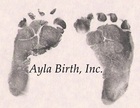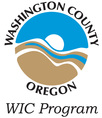Dear Viewer,
Thank you for choosing an Expression of Love: Supporting the Breastmilk Fed Baby and learning more about caring for an infant receiving their own mother’s milk. We recognize that feeding infants only human milk is recommended and we understand that many infants in the foster care system receive artificial milk. Through the expert advice offered throughout this film, and an engaging narrative, we intend to help educate and dispel common myths and misconceptions about the infant being fed breastmilk.
The goal of Expression of Love: Supporting the Breastmilk Fed Baby are to help caregivers:
1) Identify normal variations of breastfed infant stools;
2) Explore communication between foster parents, birth parents, and caseworkers;
3) Recognize situations in which the use of expressed breastmilk is not beneficial to an infant; and
4) Store and handle expressed breastmilk properly.
There is a review portion at the end of each of the five chapters in the film. You may pause the film to answer your review questions or you may choose to follow along with the video as it addresses each question and answer individually.
This toolkit includes a study guide with an overview of each chapter’s highlights. It will supplement the answer key and reinforce the objectives listed.
We encourage you to watch this film, ask questions, and consider your options for providing mother’s milk to a child in your care. Even some mother’s milk goes a long way for these at-risk babies.
Thank you on behalf of the infant in your care as well as your community!
Sincerely,
Your friends at Washington County WIC and Ayla Birth, Inc.
In accordance with Federal law and USDA policy, WIC is prohibited from discriminating on the basis of race, color, national origin, sex, age, or disability. To file a complaint of discrimination, write USDA, Director, Office of Civil Rights, 1400 Independence Avenue, S.W., Washington, D.C. 20250-9410 or call (800) 795-3272 (voice) or (202) 720-6382 (TTY). WIC is an equal opportunity provider and employer.
The goal of Expression of Love: Supporting the Breastmilk Fed Baby are to help caregivers:
1) Identify normal variations of breastfed infant stools;
2) Explore communication between foster parents, birth parents, and caseworkers;
3) Recognize situations in which the use of expressed breastmilk is not beneficial to an infant; and
4) Store and handle expressed breastmilk properly.
There is a review portion at the end of each of the five chapters in the film. You may pause the film to answer your review questions or you may choose to follow along with the video as it addresses each question and answer individually.
This toolkit includes a study guide with an overview of each chapter’s highlights. It will supplement the answer key and reinforce the objectives listed.
We encourage you to watch this film, ask questions, and consider your options for providing mother’s milk to a child in your care. Even some mother’s milk goes a long way for these at-risk babies.
Thank you on behalf of the infant in your care as well as your community!
Sincerely,
Your friends at Washington County WIC and Ayla Birth, Inc.
In accordance with Federal law and USDA policy, WIC is prohibited from discriminating on the basis of race, color, national origin, sex, age, or disability. To file a complaint of discrimination, write USDA, Director, Office of Civil Rights, 1400 Independence Avenue, S.W., Washington, D.C. 20250-9410 or call (800) 795-3272 (voice) or (202) 720-6382 (TTY). WIC is an equal opportunity provider and employer.
 An Expression of Love - Breastfeeding in Unique Foster Care Situations by Ayla Birth, Inc., Washington County WIC is licensed under a Creative Commons Attribution-NonCommercial-ShareAlike 3.0 Unported License. Based on a work at www.aylabirth.org/anexpressionoflove.html. |
|
This film follows the story of Susan, a foster caregiver who is trying her best to navigate the complexities of providing mother’s milk to her foster daughter, Lily.
Because Lily’s mother recently served a prison sentence and is a recovering drug addict, Susan is concerned with the integrity of the milk. Upon reaching out for guidance from her friend, Mary, an experienced foster caregiver, Susan soon realizes that this isn’t a decision that needs to be made alone. |
Materials for FilmResources |


